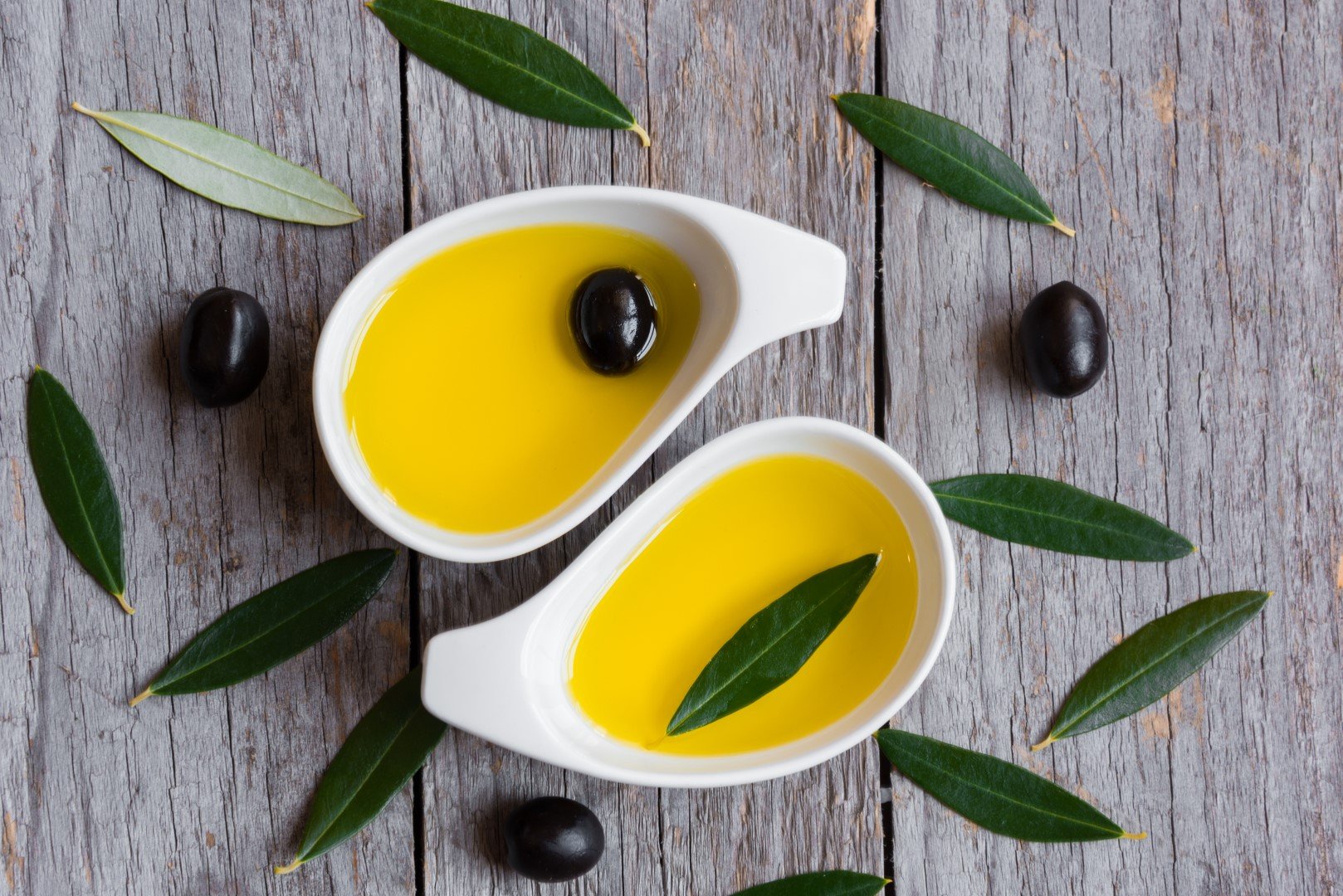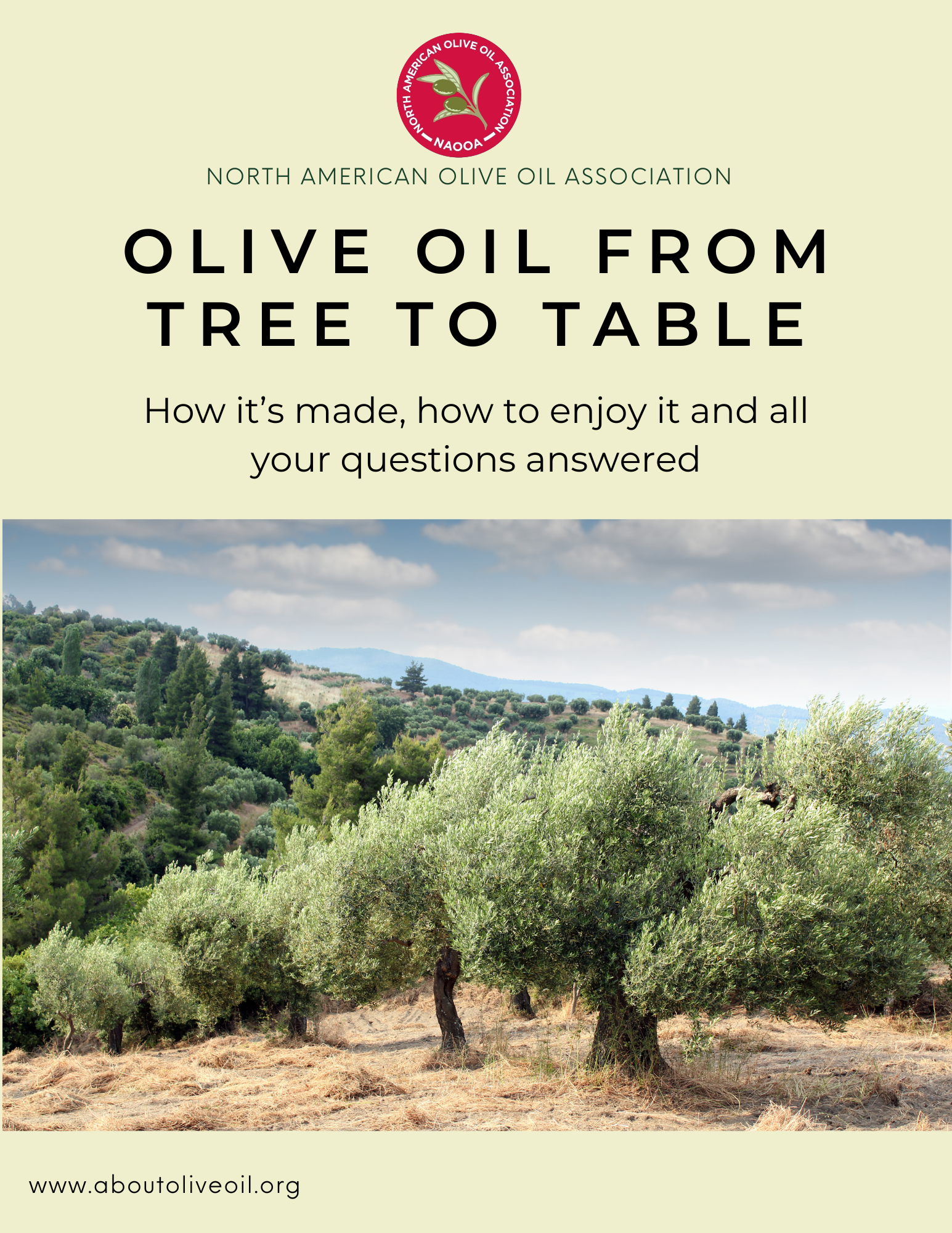Olive oil experts often talk about polyphenols and antioxidants in relation to the potential health benefits from extra virgin olive oil. It is important then to understand the difference between a polyphenol and an antioxidant, and what role they play in our health.
Summary
Antioxidants are molecules that protect our bodies from the damage caused by free radicals. Polyphenols are a type of antioxidant that is found in abundance in extra virgin olive oil.
Oxidation and the Importance of Antioxidants
Many of the fruits and vegetables we consume contain a large number of compounds critical for life. One such type of compound is known as antioxidants. Why are antioxidants so important for our health? To better understand this, you must first understand and appreciate how our bodies make energy from the process of oxidation.
Oxidation is a natural process our cells use to create energy from the oxygen we inhale. As energy is being produced in our cells, some oxygen molecules (known as oxygen free radicals or reactive oxygen species) are produced as a by-product of these processes. These oxygen-free radicals can damage your cells and DNA when in high concentration. Continuous damage by oxygen free radicals, most often termed oxidative stress, can lead to various conditions, including:
- Various forms of cancer
- Cardiovascular disease
- Diabetes
- Osteoporosis
- Alzheimer’s Disease
- Dementia
- Wrinkles associated with age
Unfortunately, the production of these harmful chemicals is sometimes enhanced by the environment in which we live. Several lifestyle, stress, and environmental factors shown to increase the production of oxygen-free radicals include (but are not limited to):
- Cigarette smoke
- Alcohol consumption
- High blood sugar levels
- Air pollution
- High intake of polyunsaturated fats
- Excessive ultraviolet radiation exposure
- Various bacterial or viral infections
- Antioxidant deficiency
So how do antioxidants fit into the grand scheme of our bodies and our health? Antioxidants are chemicals known to be “molecular scavengers” that help neutralize oxygen free radicals, thus preventing oxidative stress from occurring. There are hundreds of known antioxidants, some of which we consume in our daily diets:
- Vitamin A
- Vitamin C
- Vitamin E
- Selenium
- Manganese
- Carotenoids
- And….POLYPHENOLS!
What is a Polyphenol, and How is it Related to Antioxidants?
Polyphenols are a type of antioxidant produced by plants, typically in defense against ultraviolet radiation or foreign pathogens that may threaten the plant’s overall health. Polyphenols also supply our senses with the bitterness, odor, color, and flavor we perceive when we consume specific types of food, specifically fruits and vegetables. (2)
Polyphenols are of great interest to scientists and nutritionists alike for their antioxidant functions and in the prevention of various diseases. The field of polyphenol research, and specifically the mechanism of their antioxidant functions, remains a very fertile area of scientific research. One type of polyphenol of interest for this particular discussion are olive polyphenols.
Polyphenols in Olive Oils
Olive oil, an oil known to be rich in monounsaturated fats and polyphenols, is a key component to many diets (including the Mediterranean Diet). Extra virgin olive oils have the most antioxidants and polyphenols present, and depending upon the quantity of polyphenols can influence the flavor of the olive oil. Due to its higher concentration of polyphenols, extra virgin olive oil is more flavorful than regular olive oil. (3) Polyphenol content in olives can be influenced by a number of factors that include:
- Climate where grown (related to altitude, rainfall amounts, and amount of irrigation)
- The ripening stage of the fruit
- Fruit yield per tree
- Extraction conditions for the polyphenols
- Time spent in storage and storage conditions
While there are many types of olive polyphenols, much of the research to this point has focused on three:
- Hydroxytyrosol, a phenolic compound found in olive oil, has been identified as one of the strongest antioxidants found in olive oil and may help to reduce the risk of developing Type 2 diabetes.(1)
- Oleuropein, another antioxidant polyphenol found in olive oil, has also been shown to be quite effective in the elimination of various bacteria and viruses that infect humans.(1)
- Oleocanthal is suggested to have anti-inflammatory and antioxidant effects similar to the actions of ibuprofen, and therefore, may help to decrease the severity of several chronic inflammatory diseases. (4)
Previous studies have also demonstrated these polyphenols from virgin olive oils (and not sunflower oil) protect against coronary heart disease by preventing oxidation of the cholesterol carrying molecule known as a low density lipoprotein.(5)
What Happens to Polyphenols When We Cook
When cooking with extra virgin olive oil, different culinary methods may diminish the quantity of polyphenols in vegetables (including potatoes, eggplant, tomatoes, and pumpkin). Most of this loss is due more to the temperature extra virgin olive oil is cooked at rather than time spent cooking.(6) Luckily, not all polyphenols and their antioxidant functions are lost. Studies have shown that these polyphenols typically migrate from olive oil to vegetables being cooked efficiently; it is recommended olive oil be added to all vegetables as part of your meal preparation to acquire a diet rich in polyphenols.(8) It is also important to note that while some mistakenly believe that you shouldn't cook with extra virgin olive oil, it has been proven to be one of the most stable cooking oils.(7)
Conclusion
The benefits of consuming natural plant polyphenols have been known for quite some time. Research suggests these polyphenols may reduce morbidity and slow the progression of several types of cancer, neurodegenerative diseases, as well as cardiovascular disease. Oleuropein, hydroxytyrosol, and other polyphenol compounds are abundant in olive oil. And while some olive polyphenols may be lost in cooking, not all are...and what remains is 100% more than what you will find in other cooking oils. Therefore, an increase in the consumption of olive oil, and other plant products that contain an abundance of polyphenols seems a wise choice for those looking to improve their overall health.
References
- Gorzynik-Debicka, M. et. al.., Potential Health Benefits of Olive Oil and Plant Polyphenols. International Journal of Molecular Sciences. 19; (547), 2018.
- Pandey, K.B. and Rizvi, S.I. Plant Polyphenols as Diet Antioxidants in Human Health and Disease. Oxidative Medicine and Cellular Longevity. 2; (5), 2009.
- Rigacci, S. and Stefani, M. Nutraceutical Properties of Olive Oil Polyphenols. An Itinerary from Cultured Cells through Animal Models to Humans. International Journal of Molecular Sciences. 17; (6), 2016. This is because regular olive oil is a blend of refined olive oil and virgin olive oil. While virgin olive oils are rich in polyphenols and antioxidants, refined olive oil is not. The polyphenol content of regular olive oil comes entirely from the virgin olive oil in the product.
- Parkinson, L. and Keast, R. Oleocanthal, a Phenolic Derived from Virgin Olive Oil: A Review of the Beneficial Effects on Inflammatory Disease. International Journal of Molecular Sciences. 15; (7), 2014.
- Aguilera, C.M., et al., Sunflower Oil Does Not Protect Against LDL Oxidation as Virgin Olive Oil Does in Patients with Peripheral Vascular Disease. Clinical Nutrition. 23; (4), 2004.
- Lozano-Castellon, J. et. al., Domestic Sautéing with EVOO: Change in the Phenolic Profile. Antioxidants. 9; (1), 2020.
- Guillaume, D. and Ravetti, L. Evaluation of Chemical and Physical Changes in Different Commercial Oils During Heating. Acta Scientific Nutritional Health. 2; (6), 2018.
- Ramirez-Anaya, J.P., et. al., Changes in the Antioxidant Properties of Extra Virgin Olive Oil after Cooking Typical Mediterranean Vegetables. Antioxidants. 8, (8). 2019.
About the Author

Dr. Ryan Wynne is a professor of Biology at St. Thomas Aquinas College. He received his PhD in Biochemistry from Lehigh University and trained as a Post-Doctoral researcher at the University of Rochester. Dr. Wynne has over 15 years of experience performing research in the field of biology. He has published research in Nature Protocols, Journal of Neurochemistry, Journal of Neurobiology, Glia, and Ethology, Ecology & Evolution.





